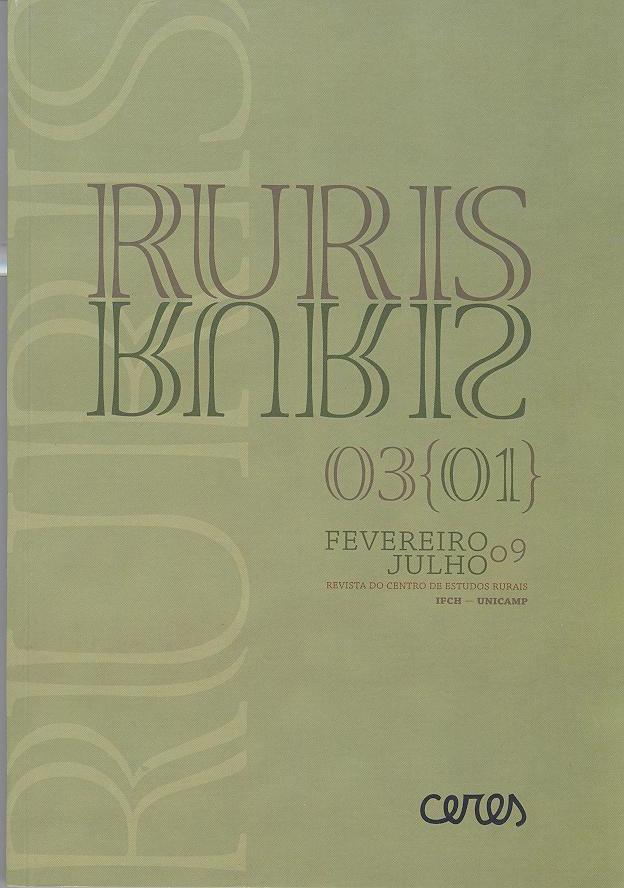Resumo
Este artículo analiza la comercialización y el consumo de alimentos tradicionales entre migrantes mexicanos originarios del estado de Oaxaca que se han asentado en Los Angeles, CA. En primer lugar se explora la incursión de mujeres en la comercialización informal de alimentos como una forma de auto empleo. En seguida se analiza su relación con el establecimiento de los primeros restaurantes oaxaqueños en esta ciudad. Se propone que el funcionamiento de este mercado requirió la conformación de cadenas de distribución transnacionales, así como de la construcción de diversos discursos relacionados con la autenticidad y la calidad de los alimentos comercializados.
Referências
ÁLVAREZ, Isabel. Cocina, cultura e identidad regional. Ética y globalización. In: Congreso sobre patrimonio gastronómico y turismo cultural en América Latina y el Caribe. Memorias, patrimonio cultural y turismo. México: Conaculta, 2002, libro 1, t. 2.
ANDERSON, E.N. Everyone eats. Understanding food and culture. Nueva York: New York University Press, 2005.
APPADURAI, Arjun. La vida social de las cosas: perspectiva cultural de las mercancías. México: Grijalbo, CNCA, 1991.
BELASCO, Warren y SCRANTON, Philip. Food nations, New York. Nueva York: Routledge, 2002.
BELL, David y VALENTINE, Gill. Consuming geographies. We are where we eat. Nueva York: Routledge, 1997.
BESSERER, Federico. Moises Cruz, historia de un transmigrante. México: Universidad Autónoma de Sinaloa, UAM – Iztapalapa, 1999.
BOURDIEU, Pierre. Forms of capital. In: RICHARDSON, John G. (Comp.). Handbook of theory and research for the sociology of education. Nueva York: Greenwood Press, 1997.
BOURDIEU, Pierre. La distinción. Criterio y bases sociales del gusto. México: Ed. Taurus, 2002.
COMMAROFF, Jean y COMMAROFF, John. Ethnography of the historical imagination. Oxford, Boulder, San Francisco: Westview Press, 1992.
COUNIHAN, Carole. Food in the USA. A reader. Nueva York: Routledge, 2002.
DOUGLAS, Mary y ISHERWOOD, Baron. The world of goods. , Nueva York: Basic Books, 1979.
DIETZ, Gunther. Multiculturalismo, interculturalidad y educación: una aproximación antropológica. Granada: Ed. Universidad de Granada, 2003.
FAIST, Thomas. Developing transnational social spaces: the Turkish-German example. In: LUDGER, Pries (Coord.). Migration and transnational social spaces. United Kingdom: Aldershot, 1999.
GABACCIA, Donna. What do we eat?. In: COUNINHAN, Carole. Food in the nation. A reader. Nueva York: Routedge, 2002.
GARCÍA, Canclini. El consumo cultural y su estudio en México: una propuesta teórica. In: CANCLINI, García (Coord.). El consumo cultural en México. México: Pensar la Cultura, 1993
GIRARD, Luce. El plato del día. In: CERTEAU, Michel. La invención de lo cotidiano 2.Habitar, cocinar. México: Universidad Iberoamericana, 1996.
HINOJOSA, Raúl. Seminario Reflexiones sobre la Integración en América del Norte: TLCAN, Alca y Doha. La Jornada. México: 29 de septiembre 2004.
HOBSBAWM, E, RANGER, T. (ed.). The invention of tradition. Cambridge: Cambridge University Press, 1983.
KLEIN, Noami. No logo. El poder de las marcas. España: Paidos, 2001.
LIGHT, Ivan. The ethnic economy. In: SMELSER, Neil y SWEDBERG, Richard (Ed.). Handbook of economic sociology.
Nueva York: Russell Sage Foundation, 2005.
LOMNITZ, Larissa. Como sobreviven los marginados. México: Siglo XXI, 1998.
LÓPEZ, Felipe y RUNSTEN, David. El trabajo de los mixtecos y los zapotecos en California. In: FOX, Jonathan y RIVERASALGADO, Gaspar. Indígenas mexicanos migrantes en los Estados Unidos. Santa Cruz, Miguel Ángel Porrúa, Universidad de California, 2004.
RUIZ, Maximino Matus. El ingrediente étnico: autenticidad, mercantilización de la diferencia cultural y control de mercados a través de los restaurantes oaxaqueños en Los Angeles, CA. Tesis (Maestría) – Ciesas-Occidente, México.
MAUSS, M. Ensayo sobre los dones: razón y forma del cambio en las sociedades primitivas. In: MAUSS, M. Sociología y antropología. Madrid: Tecnos,[1950], 1979, p. 153-263 .
OSTROMYT, Elinor. Una perspectiva del capital social desde las ciencias sociales: capital social y acción colectiva. Revista Mexicana de Sociología, México IIS, Unam, año LXV.1, enero/marzo 2003.
REMELLA, Franco. Por un uso fuerte del concepto de red en los estudios migratorios. In: BEJER, María y OTERO, Hernán (Comps.). Inmigración y redes sociales en la Argentina moderna. Buenos Aires:Centro de Estudios Migratorios Latinoamericanos, 1995.
RODRIGUEZ, Guadalupe. La denominación de origen y el mercado de la distinción. México: Ciesas, Sagarpa, 2002.
ROSEBERRY, William. Cuestiones agrarias y campos sociales. En las disputas por el México rural. México: Colmich, 1998, v. I – Actores y campos sociales.
VALENZUELA, José Manuel. (Coord.). Identidades culturales: comunidades imaginarias y contingentes. Decadencia de las identidades. México: Plaza y Valdez, Colef, 2000.
VELASCO, Laura. El regreso a la comunidad. Migración y agentes étnicos. Los mixtecos en la frontera México-Estados Unidos. México: Colef, Colmex, 2002.

Este trabalho está licenciado sob uma licença Creative Commons Attribution-NonCommercial-NoDerivatives 4.0 International License.
Copyright (c) 2012 RURIS (Campinas, Online)

